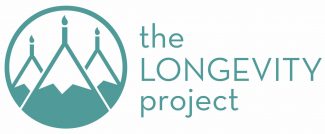The Longevity Project, Part 1: Does living in the Yampa Valley lead to a longer life?
Editor’s note: This is the first installment in a four-part series on aging in Routt County with a focus on the Blue Zone principles for living a long and healthy life.
STEAMBOAT SPRINGS — At 80 and 83, respectively, Steamboat Springs residents Elaine and Win Dermody defy their age in physical appearance, spirit and spunk and active lifestyle.
From retirees skiing to ranchers wrangling well into their golden years, the Yampa Valley is home to a significant percentage of actively aging people. According to a senior population trends analysis published by Newgeogrphy in February, Steamboat Springs ranked first in the nation when it came to the biggest gains in its senior population, which increased nearly 80 percent from 2010 to 2016.
So with our population graying at such a fast rate, what is the secret to living a long and healthy life?
Nine healthy lifestyle habits shared by people who’ve lived the longest.
Move naturally: The world’s longest-living people don’t have mechanical conveniences for house and yard work.
Purpose: Knowing your sense of purpose is worth up to seven years of extra life expectancy.
Down shift: Stress leads to chronic inflammation, associated with every major age-related disease.
80 percent rule: Stop eating when your stomach is 80 percent full. Eat your smallest meal in the late afternoon or early evening, and then don’t eat for the rest of the day.
Plant slant: Beans are the cornerstone of most centenarian diets.
Wine at 5: Moderate drinkers outlive non-drinkers. Drink one to two glasses per day with friends and/or with food.
Belong: Research shows that attending faith-based services four times per month will add 4 to 14 years of life expectancy.
Loved ones first: Successful centenarians put their families first.
Right tribe: The social networks of long-living people have favorably shaped their health behaviors.
Is it genetics? Diet and exercise? Money? Love? Location? Luck?
For the Dermodys, family and health have always topped their list of life priorities.
The majority of research suggests genetics determines between 20 and 30 percent of potential lifespan, leaving 70 to 80 percent to lifestyle.
Through a revolutionary project, explorer, journalist and best-selling author Dan Buettner and National Geographic identified five communities across the globe where people are living the longest — Okinawa, Japan; Sardinia, Italy; Nicoya, Costa Rica; Ikaria, Greece; and Loma Linda, California. These areas were labeled as “Blue Zones.”
Joined by a team of medical researchers, anthropologists, demographers and epidemiologists, Buettner’s findings resulted in nine evidence-based lifestyle habits shared by the five Blue Zones.
Now, they are working to spread those longevity discoveries in the United States.
But that is no small task in our current culture.
“Wherever we go, we are guided through a gauntlet of unhealthy choices,” said Tony Buettner, brother of Dan Buettner and senior vice president of business development for Blue Zones, LLC.
Preliminary data shows 2017 could mark the third year in a row American life expectancy will decline.
“For the first time in human history, it is projected our children will live less long than their parents,” Tony Buettner said.
Routt County, and Colorado as a whole, fare significantly better than the rest of the nation.
While Routt isn’t ranked as high as Summit, Eagle and Pitkin counties, which have some of the highest life expectancies in the nation, it isn’t far behind, ranking 7th in the state for male longevity — 81.56 years — and 14th for females — 83.98 years.
Depending on the study, Colorado life expectancy ranks between seventh and 11th in the nation, with an average of around 80.2 years.
Mountain resort towns tend to attract people from other places seeking a healthy lifestyle and connected community, Buettner said. He added these towns also create an environment where “the active choice is the easy choice.”
Today, Buettner is part of a team working to replicate Blue Zones across the country, currently working with 45 communities in 11 states to revamp the way people move, eat and engage with each other to create a culture of well-being.
In 2008, they began a pilot program in Albert Lea, Minnesota, and the town was officially certified as a Blue Zone Community in 2016. Today, health care claims have been reduced by 49 percent, and life expectancy increased by three years.

FREE “The Blue Zones” book club discussion
When: 6 p.m. Tuesday, Sept. 18
Where: Off the Beaten Path, 68 Ninth St.
FREE open house with book spokesman Tony Buettner
When: 2 to 4 p.m. Friday, Sept. 21
Where: Casey’s Pond, 2855 Owl Hoot Trail
The Longevity Project panel and Buettner keynote
When: 6 to 8:30 p.m. Friday, Sept. 21
Where: Allbright Auditorium at Colorado Mountain College, 1275 Crawford Ave.
Tickets: $25 at bit.ly/longevity2018
Brought to you by Casey’s Pond.
“To truly transform the health of a community, it cannot be done in silos,” Buettner said.
Elected leaders, nonprofits, government, businesses, schools, civic, volunteer and faith-based organizations and individuals must be involved in the effort. It requires leadership, buy-in and engagement to transform an environment in which healthy choices become the default, Buettner said.
In the world’s five Blue Zones, living not only long lives, but having a high quality life free of chronic disease and disability right up until the end, is not something those populations pursued but rather something that “ensued,” Dan Buettner explained in a radio interview.
So what would it take for Steamboat to become a Blue Zone?
How can Yampa Valley residents add quality years to their lives?
Those questions, along with identifying the ways in which Routt Countians already embrace many of the Blue Zone trademarks and the challenges faced by seniors living in our mountain town, will be explored by the Steamboat Pilot & Today in a series of four articles. In addition, the Steamboat Pilot & Today will profile over 35 Routt County “super seniors,” who embody the pursuit of long and healthy lives.
Two of those outrageously healthy seniors are Elaine and Win Dermody, who, whether innately or through conscious practice and hard work, have incorporated many of the “Power 9” Blue Zone habits into their daily lives for most of their adulthood.
“We did not end up here accidentally,” Win said. “We may have inherited good genes, but we’ve made deliberate decisions on other things.”
“A little good luck doesn’t hurt,” added Elaine.
They spent their lives running, playing tennis, skiing and hiking.
In high school, Win was a three-sport athlete before playing college football. Elaine grew up on a farm in New Hampshire, where, as in the Blue Zones, being physically active is simply a part of everyday life.
In the most recent years, they’ve made some tradeoffs. Cross-county skiing for downhill. Pickleball for tennis. Backpacks for llamas. Walking for running.
“I used to think I wouldn’t get old if I climbed Mount Whitney every year,” Elaine said. “Now it’s Mount Zirkel. You do get old. I’m very much aware I’m no longer 60. And I’m no longer 70. There is a difference and one has to adjust. The good news is you are still able to do a lot of things you can and want to do.”
Win calls himself fortunate to be married to a “world-class cook.” Most of what they eat is made from scratch. They limit red meat, dairy, white flour and sugar but enjoy pasta, eggs, fresh vegetables, brown rice, chicken, fish and pork.
They both love to eat and don’t sacrifice taste. They indulge, but they balance. Part of why Win works hard to stay active is because he enjoys eating.
They enjoy wine but in moderation.

How to live a longer, happier, healthier life
Part 1: Does living in the Yampa Valley lead to a longer life?
Part 2: Move often and eat more plants
Part 3: Finding purpose and passion in daily life
Part 4: Loneliness a major health risk for aging population
Super Seniors: Yampa Valley senior profiles
Equally important in the “Power 9” list of habits are the factors of family, friends and community engagement.
“Family is the number one thing in our life and has been even more so as we get later into our lives,” Elaine said.
They have two children and seven grandchildren, and they see their family often, and find great joy in the time spent together.
“We gain a lot of joy in seeing them achieve their goals,” Elaine added.
As for Win and Elaine, they’ve been married for 61 years. Asked for the secret to a long and happy marriage, they answer simultaneously, “compromise” and “not giving up.”
The Dermodys have always found their purpose, whether that was in raising a family, pursuing their careers or being involved in their community.
The word for purpose used by Okinawans is “Ikigai.” Buettner also calls it a “mission statement.” And knowing it can add up to seven years of life expectancy, he said.
In retirement, the Dermodys are just as busy as when they worked.
The list of places they volunteer is lengthy, from environmental work to working with music, arts, civic, charity and faith-based organizations.
“We’re very busy,” Elaine said. “There’s so much opportunity for volunteerism, especially here in Steamboat. And all worthwhile.”
In 2000, Elaine started Friends of Wilderness, an organization dedicated to assisting the forest service in managing and protecting wilderness areas. And it’s a primary Ikigai for Elaine — “protecting the wilderness for future generations.”
Win just finished the Steamboat Springs Citizens Police Academy and signed up for Citizens 101, another course that will teach him about the inner-workings of city government.
He finds reward and his sense of purpose in interacting with people.
“I like to make everyone I come into contact with feel good,” he said.
Soon, they will head out on a service trip with the Sierra Club in California. They love to travel, and Elaine recently launched a new career in painting — a longtime passion for which she never found time. Those are the two things she considers her self-indulges.
Two more of the “Power 9” habits focus on reducing stress and finding a sense of belonging.
“The mind is important,” said Elaine. “It’s really important to think positive, let go of anger and believe in a greater power.”
She does yoga and has long focused on replacing negative thoughts with positive ones.
“All my life I’ve called upon for help,” Elaine said. “I’ve never felt like I had to go it alone. And I’ve gotten help to do things beyond my own capabilities.”
“But she calls on me for house maintenance,” Win joked.
Both describe themselves as “more spiritual than religious,” and they find strength and inspiration in things like daily prayers and a connection to nature.
While they may not prescribe precisely to every Blue Zone tenet, the Dermodys have incorporated most of them into their lives and have for a long time. And their focus on family and health only increases as they grow older.
“You can have all the money in the world, but you can’t enjoy it if you don’t have your health,” Win said.
Part 2 in The Longevity Project series will appear in the Sept. 6 edition of the Steamboat Pilot & Today.
To reach Kari Dequine Harden, call 970-871-4205, email kharden@SteamboatPilot.com.
To reach Kari Dequine Harden, call 970-871-4205, email kharden@SteamboatPilot.com or follow her on Twitter @kariharden.

Support Local Journalism

Support Local Journalism
Readers around Steamboat and Routt County make the Steamboat Pilot & Today’s work possible. Your financial contribution supports our efforts to deliver quality, locally relevant journalism.
Now more than ever, your support is critical to help us keep our community informed about the evolving coronavirus pandemic and the impact it is having locally. Every contribution, however large or small, will make a difference.
Each donation will be used exclusively for the development and creation of increased news coverage.













